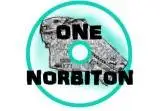My father, Dr William Finny retired from General Practice in 1929 when he was aged 65. I was then six years old so I have only a few memories of our home “Thamesa” (on the corner of No 6 Kingston Hill and Wolverton Avenue)-I can remember the waiting room, the consulting room and especially the dispensary with all the rows of bottles and the pill-making machine. In those days it was normal for the doctor to prescribe whatever was needed and to dispense it himself after surgery time and then for the “bottle boy” to deliver to it on his own bicycle to the patient that evening. Bottle boys were quite a normal part of medical practice and presumably we had a series but the only one I remember with great fondness was George Pepperell- scarlett hair and I suppose about 14. His job was to wash the medicine bottles, stick on labels “Three times a day” “Before meals” or whatever and then perform a magical feat of wrapping the bottle in white paper and sealing it with a red sealing wax. Sometimes, as a very special treat, I was allowed to stick labels on bottles but never to actually wrap it up and seal it.
My memories of car transport are as follows. Father had two, so that one could be rested! I do remember a car journey to Portsmouth taking three days! Father never drove his pony more than 20 miles a day and so transferred this sort of thinking to his car. Therefore, it was inevitable that a 60 mile journey must take three days. Of course he had started his career with pony and trap transport. Two ponies were kept in what later became the garage. These were kept fit by being given, in turn, a hot bran mash and four of father’s pink pills after every hard week’s work. The Bottle boy sat beside father on their tour around visiting patients. Father drove and the bottle by held the reins while he went into the various houses.
Visiting patients in Kingston Vale after dark was quite a dangerous thing to do. Because the equivalent of our present day muggers lurked on those unlit country roads. So father always carried a police whistle and a loaded stick. I never heard that he came to any harm. He probably terrified the muggers! In those days, the doctor was never seen out of doors without his top hat on. I remember a row of seven hatboxes labelled Monday, Tuesday, Wednesday etc finishing with “Best” for Sunday. Presumably they all moved down one as when Monday became shabby it was given to us to play funerals with. In this way the doctor was quite conspicuous and was probably not stopped and robbed. More because the robber knew he wouldn’t have much money on him, than because he was on an errand of mercy.
Confinements always took place in people’s homes. Father said he’d stopped counting but he had dozens of godchildren. He was very much the family doctor; seeing his babies on a regular basis, going to their christenings, confirmations and weddings. And if, after a year of them having been married, he had not been called in for a happy event, he would present the embarrassed couple with a Gooseberry bush.
He adored babies and children and was, in return, very well loved. At his memorial service in 1952, the church was packed with ex-patients, standing in the aisles. And afterwards all of them lined the road from the parish church to the Guildhall to say a fond farewell to a man who had lived for 88 years at a fast and furious pace and always had had time to stop and give them his undivided attention. He had become a barrister and was elected Mayor of Kingston seven times. And had enjoyed his life enormously.
Random additional comments
Slate Clubs
This was, of course, before the NHS. To pay for medical care for the whole family, Pubs used to run “slate clubs”. Father was the slate club doctor for the George & Dragon and the Alexandra pub in Park Rd and probably for a couple of others too.
Speaking tubes
There was was often a queue outside the surgery door and a speaking tube ran from there to an outlet beside my fathers bed. You had to pull out a stopper and blow up the tube. This produced a piercing whistle in his ear which woke him up. Then you could hold a conversation up and down the tube
Emergency operations
Surgery for Acute appendicitis was performed, of course, on the scrubbed kitchen table sterilised with lots of carbolic. Dripping chloroform on a round thing – like a large tea strainer- with gauze on it, was used as the anaesthetic. Father always used it on me for tooth extraction. I remember the smell so well – also the awful vomiting afterwards. He was an MCh as well as MD and BAO so he enjoyed the occasional emergency operation.
When Dr Finny was Mayor of Kingston the mock Tudor building with Saxon Kings on the corner of the Market Square was built.
His daughter Elizabeth Finny who wrote the above was my patient.

